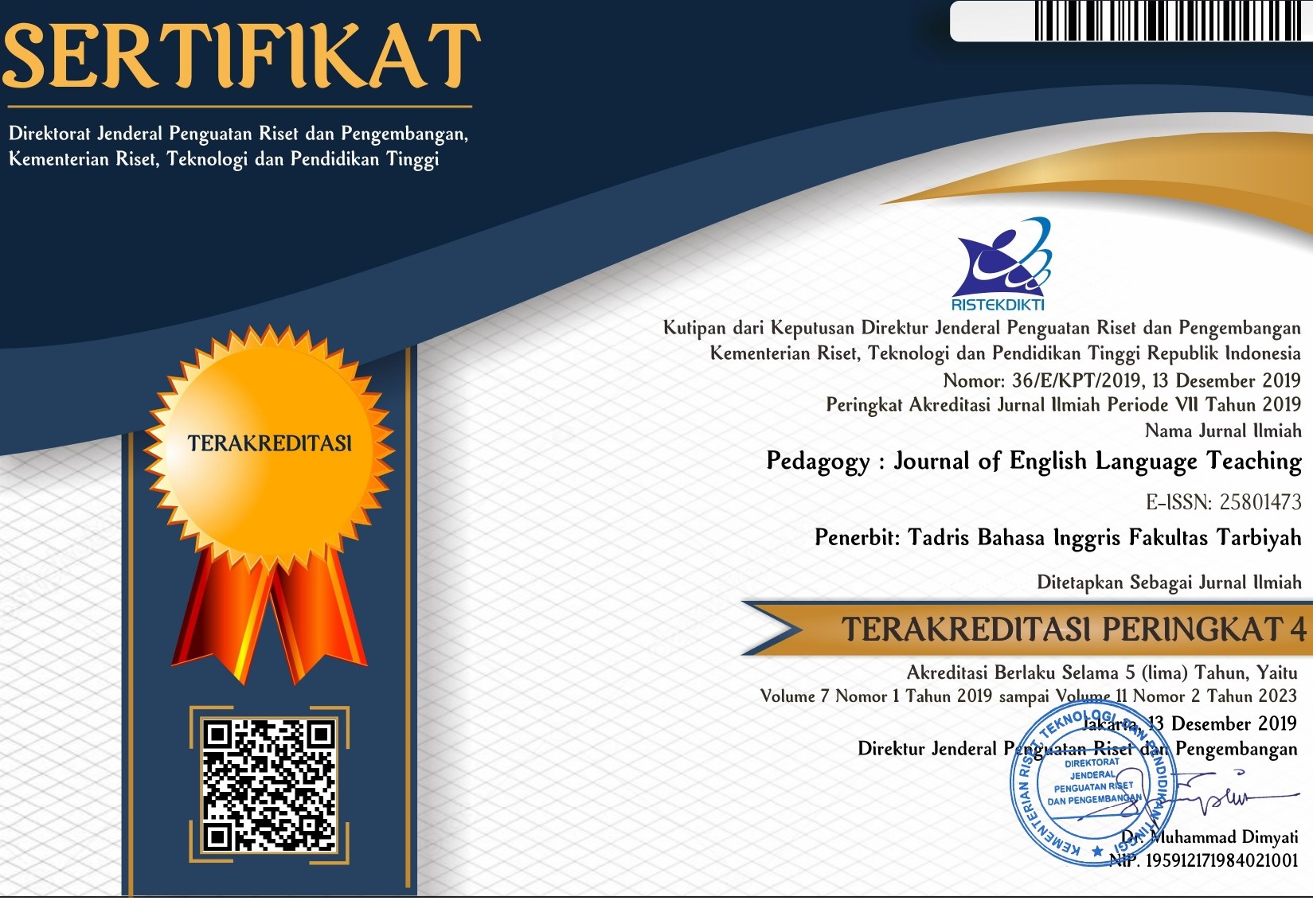Fear of Negative Evaluation Factors from Ought-to L2 Self among Indonesian High School EFL Learners
DOI:
https://doi.org/10.32332/joelt.v10i1.4536Keywords:
anxiety, fear of negative evaluation (FNE), motivation, ought to L2 Self (OL2S), thematic analysisAbstract
The present study aims to investigate Indonesian high school English as Foreign Language (EFL) learners’ views on factors originating from Ought to L2 Self (OL2S), a second language (L2) motivation construct, affecting their Fear of Negative Evaluation (FNE), L2 anxiety construct. Six learner participants were involved in the study. It employed online semi-structured interviews to obtain the data. Through Thematic Analysis, the present study found three main findings. First, the desire to study abroad lessened the learners' FNE. Secondly, a realization of possible future negative impacts of not learning English and the obligation to avoid these impacts made the learners have less FNE. Third, their perceived obligation to have 'correct' English pronunciation instills higher FNE. Pedagogical implications include promoting study abroad aspiration among learners, introducing Global Englishes prioritizing intelligibility over attaining native speakers' ability and designing more activities mirroring future practical uses of English. Suggestive directions for future studies are also stated concerning the limitations and findings of the present study.
















